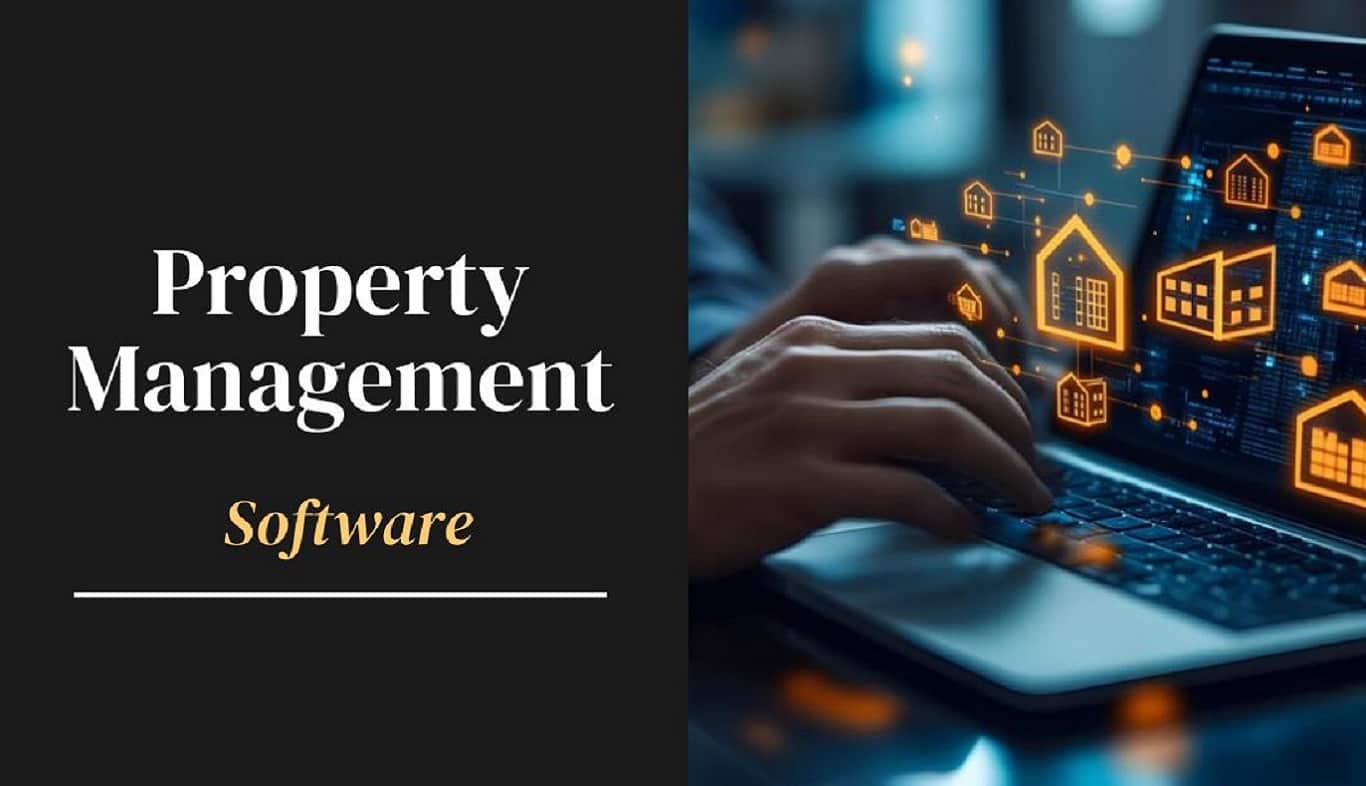Property management as a segment of the industry has been on a rising trend in the last few years; however, the majority of them are in a way owing to property management software systems. Among the positive implications of this technology is a modification of how property managers, landlords, and other players in this real estate industry undertake their operations. Unfortunately, an overwhelmed market makes it more challenging since the identification of the most suitable property management software that will suit a small business owner, or an individual property owner becomes even more challenging.
This article defines property management software, why it is necessary, and how to choose the most appropriate one for your particular enterprise. We shall also discuss the various costs associated with these tools and analyze what has led to the growth of the tools.
What is Property Management Software?
At its core, property management software is a digital tool designed to ease the operations that management needs in any rental house. The software solutions automate and manage all the varied aspects of real estate, including these functions:
- Tenant screening and applications
- Rent collection and lease tracking
- Property maintenance requests
- Accounting and financial reporting
- Communication with tenants and vendors
When incorporated in the platform of property management software, this would assist both big-scale organizations in property management as well as small independent landlords to save time, lessen mistakes and at the same time improve the quality of service of their tenants.
The Rise of Property Management Software: Why Now?
The property management software market is experiencing tremendous growth as digitalization spreads across sectors. More units than ever before are being managed by landlords and property managers, and the manual, tracker-based monitoring of rent payments and tenant inquiries needs to be revised.
It is no longer a question of convenience alone. Today, property owners and users face different issues: detailed analytics, compliance with local regulations, and tenants’ high standards for digital experience of their letting. The constantly growing challenges in real estate call for not only efficient but also soundly designed software solutions for property managing that correspond to the market demands.
The Role of Technology in Property Management
Technology is now an everyday backbone of real estate management. Tools such as cloud computing, AI-driven insights, and mobile access have all the power to change how properties are managed. The software development will allow landlords to access critical data anywhere, anytime, making it possible to control many without having to be physically present.
How Has the Property Management Software Market Grown?
The size and growth of the property management software market cannot be overlooked. Advancements in technology have made it easier and more efficient to develop better solutions for property management needs, leading to the development of several property management software programs best suited to different categories of business entities and huge real estate companies.
In fact, the research documents show that the global property management software market will ascend at a CAGR of more than 7% in the future years. This growth rate we attributed to the rise in demand for automation of processes, and handling many properties from one website.
Key Features of the Best Property Management Software
So, what makes the best property management software stand out? There are a few core features that every software should offer, regardless of the size of your portfolio:
1. Tenant Management
A good property management software must enable a landlord to conduct business with tenants. This can include selecting a tenant and taking pictures from the moment he moves in to the time he wants to vacate the house, which can be done electronically to reduce cycle time and enhance efficiency. The other element of management is the use of virtual platforms to fill rental applications and conduct background checks.
2. Rent Collection
The single most important element of a property managing software is online rent collection. Specifically search for software that enables the tenants to schedule the payments, to receive alerts and to make payments using credit cards or ACH transfers, or checks or bank transfers. It cuts down late payments and is beneficial in managing the cash inflow and the out flow .
3. Maintenance Tracking
It can surely get very tiring trying to deal with several maintenance requests at first, if you are managing more than one property. For the best software it will be used a functionality of Maintenance Management, where tenants will be able to submit requests through online and landlords will be able to monitor the status of the repairs and assigning tasks to vendors. This keeps most of the problems under control to avoid strain on the overall value of properties and tenant satisfaction.
4. Financial Reporting
A well-rounded property management software should include comprehensive financial reporting tools. It should help you track income, expenses, and property performance. Customizable reports for tax filings, profit/loss statements, and even property-specific expenses are incredibly valuable for both large-scale and small-business landlords.
5. Communication Tools
Smooth communication between landlords and tenants is crucial. Some property management software platforms have built-in messaging tools that allow for easy and transparent communication. This can include everything from lease renewal reminders to alerts for upcoming maintenance work.
Also Read: The Role of Cryptocurrencies in Emerging Markets
Choosing the Best Property Management Software for Small Businesses
If you’re a small business or independent landlord, you might wonder how to find the best property management software for small businesses without being overwhelmed by the options. The key is to focus on software that is simple, scalable, and affordable.
On platforms like Reddit, many small business owners recommend cloud-based solutions that offer flexibility and ease of use without the need for a dedicated IT department. These tools often provide a mix of essential features like online rent collection, tenant tracking, and basic financial reporting without the complex (and costly) features required by larger companies.
One popular option is Buildium, a software designed specifically for small property owners that includes a user-friendly interface and all the features small landlords need. Another commonly discussed option on best property management software for small business Reddit threads is AppFolio, which offers a mobile-friendly platform ideal for landlords managing multiple smaller properties.
How Much Does Property Management Software Cost?
Cost is always a key consideration when choosing any new business tool. So, how much does property management software cost? The answer largely depends on the size of your business and the specific features you need. Most platforms offer tiered pricing based on the number of units you manage, ranging from free or low-cost solutions for small portfolios to more expensive, feature-rich systems for larger operations.
Free or Low-Cost Solutions
For landlords managing a handful of properties, there are even free options available, like Stessa or Avail, which provide essential tools without any upfront cost. These platforms typically make their money by offering premium features or taking a small fee from tenants using online payment services.
Mid-Range Solutions
Mid-tier solutions typically range between $30-$100 per month, depending on the number of units being managed. These also more advanced solutions, including TenantCloud or Rentec Direct, offer such things as maintenance tracking, automated accounting, and detailed reporting. Enterprise Solutions
Enterprise Solutions
For larger businesses managing hundreds or even thousands of units, enterprise-grade solutions like Yardi Voyager or RealPage offer advanced functionality like AI-driven analytics, marketing tools, and deep integration with other business systems. These platforms can cost thousands per month, but the ROI is significant for companies managing large property portfolios.
Benefits of Using Property Management Software
The right property management software can offer numerous benefits beyond just saving time. Here are some key advantages:
- Improved Organization: No more spreadsheets and papers lying around hither and thither. Everything gets stored in one platform that can be accessed from any corner of the globe.
- Enhanced Efficiency: Built-in accounting and financial reporting tools make easier tracking of income, expenses and taxes.
- Better Financial Management: Built-in accounting and financial reporting tools allow for easy tracking of income, expenses, and taxes.
- Tenant Satisfaction: Quick responses to maintenance requests and easy communication through the software improve tenant relations.
- Scalability: As your business grows, property management software can grow with you, adding features and tools to meet your needs.
Also Read: Key Features, Potential and Integration of New Generation Blockchain 4.0
Is Property Management Software Worth It for Small Landlords?
If you are a small landlord and managing just a few buildings, you might ask if this property management software is worth investing in. Short answer: Yes! The value of increased efficiency, better tenant relationship-building, and improved tracking of finances put the cost a small operation incurs in many more folds. Many of these tools offer free trials or plans with a base for a more miniature portfolio, so you can always start small and scale up as you need to.
How to Choose the Right Software for Your Business
When choosing property management software, consider the following:
- Size of Your Portfolio: How many units do you manage? The larger the portfolio, the more features you’ll likely need.
- Budget: Consider the cost and whether the features provided justify the price.
- Ease of Use: Is it user-friendly? Steep learning curve experience and time and effort will be wasted.
- Customer Support: Does the service offer good customer support? On-time help is greatly appreciated, especially during the initial setup process.
Conclusion
The decision on a PMS is not something to be cut loose on the basis of cost. In fact, it needs to be something that gets the job done. When you are managing tenancy over several rental units or an expanding rental portfolio, investment in property management software will make it significantly more efficient, cut administrative headaches, and boost tenant satisfaction. But the market is growing so fast, and there are hundreds of solutions suitable to businesses in all shapes and sizes, so take your time and try to determine which one will best help your business.



